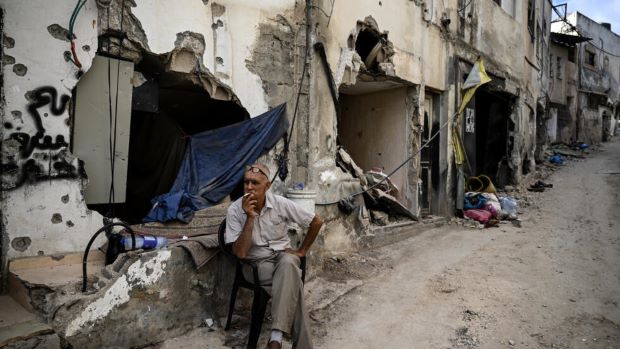Israeli military withdraws from Jenin after 10-day raid
By Raja Abdulrahim
WEST BANK – Israeli military forces Friday (6) appeared to withdraw from the Palestinian city of Jenin after a 10-day raid that killed 21 people, including children, and caused widespread destruction of streets, homes and businesses, according to Palestinian news media and residents.
ِHours after the Israeli military pulled back from the city, in the Israeli-occupied West Bank, Palestinian civil defence teams, along with public works and utility employees, fanned out to assess the damage and began the effort to restore essential services, according to Wafa, the Palestinian Authority’s official news agency.
It wasn’t immediately clear whether all soldiers had left Jenin or whether they would soon return. As Israeli forces have conducted one of their most extensive and deadly raids in the West Bank in years, they have pulled back from Palestinian cities and towns several times over the past week before coming back.
In a statement Friday, the Israeli military did not comment on a withdrawal but said its forces “are continuing to act in order to achieve the objectives of the counterterrorism operation.”
Palestinian residents who had been trapped in their homes for days — as Israeli troops and bulldozers roamed Jenin — ventured into the streets Friday, and some who had fled the raid returned. They found their neighbourhoods unrecognizable.
“God, I just collapsed,” said Kareeman Abu Naise, 30, when she saw a video of her home taken by her father-in-law, who had returned to the neighbourhood known as Jenin camp.
Abu Naise, who had fled the raid, heard from neighbours Sunday (Sept 1) that Israeli soldiers had fired a missile at their home, which had already been damaged by an Israeli bulldozer. That night, she said, she couldn’t sleep and cried for hours.
Seeing the damage on video — including the destroyed ground-floor living room where they had received guests — was even more difficult.
“Literally, everything we had was in that house. Our belongings, all our memories, the good and the bad,” said Abu Naise, a mother of two. Her husband, Muhammad, was shot and killed by Israeli soldiers in 2022 as he walked home from work.
“Two of the most precious things to me were my husband and my house,” she said, “and now I’ve lost them both.”
The raids of the past 10 days, which included assaults on the city of Tulkarem, were among the deadliest in the territory in years. At least 39 people have been killed across the West Bank, according to the Palestinian Health Ministry.
Seven children were among those killed, according to the United Nations Agency for Palestinian Refugees, which said that the past week was the deadliest for Palestinian civilians in the West Bank since November.
Nearly 3 million Palestinians live under Israeli occupation in the West Bank. The Israeli military has described the raids that began Aug. 28 — a marked escalation over the near-nightly operations that had already become the norm there — as an effort to crack down on Palestinian armed groups and combat rising attacks against Israelis.
In its statement Friday, the Israeli military said its forces had killed 14 members of armed Palestinian groups in Jenin over the past week and a half. It also said it had detained more than 30 people suspected of being members of the groups or of planning attacks, and had found weapons and explosives.
It also said it had carried out four airstrikes, a type of attack that had been rare in the West Bank before the Hamas-led assault on Israel on Oct. 7.
Some Jenin residents who had made dangerous escapes from their neighbourhoods over the past 10 days returned Friday morning to survey the aftermath of the Israeli attacks. They were also able to check on loved ones whom they couldn’t reach because phone lines were down, residents said.
“Some are burying a martyr or visiting someone who has been wounded or checking on their home or shop,” said Nidal Naghnaghia, a resident who had fled Jenin with his family shortly after the raid began.
Many found homes so badly damaged that they are no longer habitable and streets so ravaged by bulldozers that cars cannot pass, residents said.
Khulood Jabr, a 39-year-old mother of three, said it was as if people had been freed from their homes as they poured into the streets, surveying the damage. What they saw was as if nothing had been spared, she said.
“There is so much destruction, you can’t describe it. They didn’t leave any shop undamaged,” she said. “What crime did the owners of these shops commit? What do the electrical poles have to do with anything? What does the water have to do with anything?”
But Jabr added that she was heartened to see the people of the city banding together to rebuild, even as they feared Israeli forces would soon return.
Some residents were less hopeful, worrying that any attempt to rebuild would again be crushed in the next Israeli offensive.
“All of this will repeat itself, sooner or later,” said Ismail Bani Gharra, 25, who returned to Jenin on Friday. Of the Israeli forces, he said: “They will come again; there will be more raids and more people killed.”
-New York Times



Comments are closed, but trackbacks and pingbacks are open.